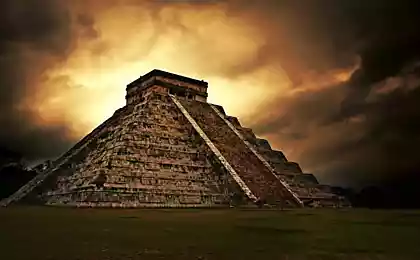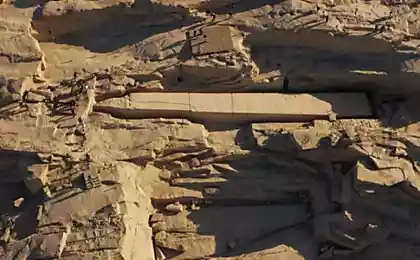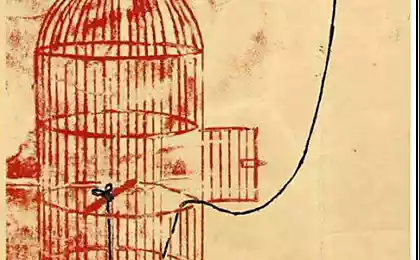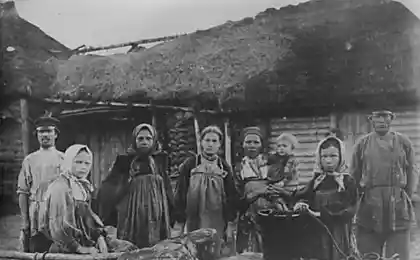585
The mysterious Olmecs — people from nowhere
All these heads are carved from solid blocks of basalt. The smallest have a height of 1.5 m, the biggest is about 3.5 m. the Majority of the Olmec heads — about 2 m. Accordingly, the weight of these huge sculptures ranges from 10 to 35 tons! When you look at the head, immediately raises a lot of questions for which knowing the science I want to get a clear answer. Facial features from each of the 17 gigantic heads are not individual and they all have one thing in common – a distinctive Negroid characteristics. Where in pre-Columbian America come from blacks, if according to official science, no contact before Columbus between Africa and America could not be? But the Olmecs themselves didn't look like Negros, which follows from the numerous other statues and figurines. And only those 17 goals is endowed with Negroid features.
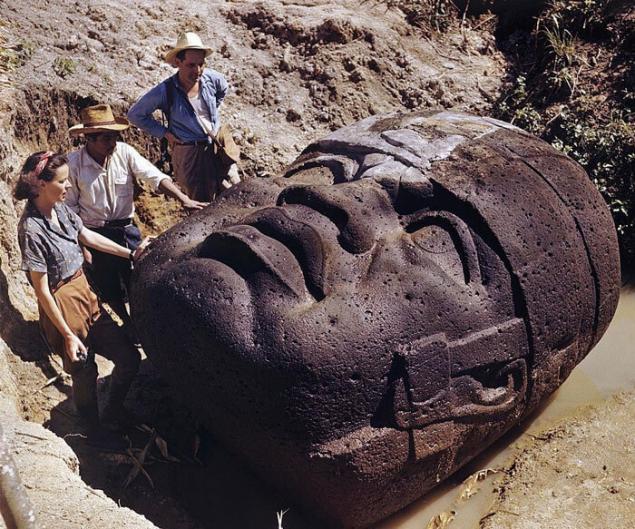
In using any of the tools in the absence of metal(again, according to the official version) with such precision and detail were processed basalt, one of the most durable stones, which made heads? Is it another stone?
As multi-ton boulders, some up to 35 tons weight, was delivered to the treatment site 90 km from the place of their production through the jungle on the terrain? Despite the fact that (for the same version) wheels Olmecs did not know (incidentally, has already proven that he knew).
Why do they so big? After all, many other Olmec sculptures, and animals including, quite normal size and quite American (Indian) looks. And only these 17 black muzzles. For what they are? Or is it life size? Now we will try to answer these questions ...
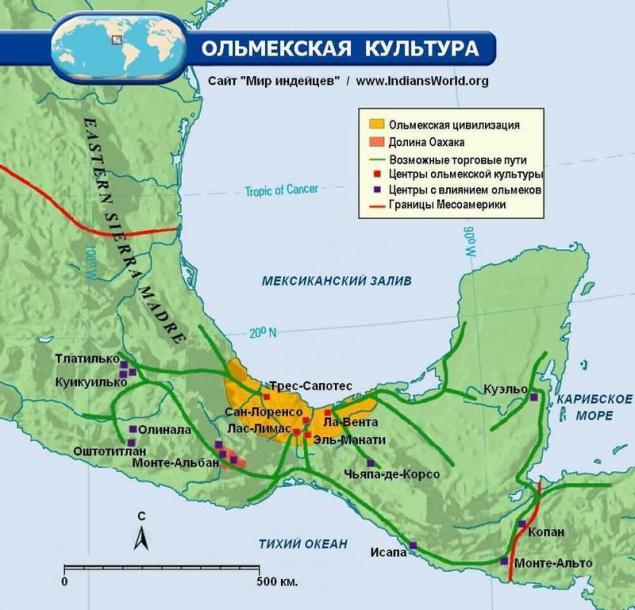
The Olmec civilization is considered the first "mother" civilization of Mexico. Like everyone else the first civilization it arises immediately in the "ready-made": with well-developed hieroglyphic writing, an accurate calendar, canonized art, developed architecture. According to the ideas of modern researchers, the Olmec civilization emerged in the middle of the II Millennium BC and existed for about a thousand years. The main centers of this culture was located in the coastal zone of the Gulf of Mexico on the territory of modern States of Tabasco and Veracruz. But the cultural influence of the Olmec can be traced throughout Central Mexico. Still don't know anything about the people who created the first Mexican civilization. The name "Olmec" means "rubber people" of the modern scientists. But whence came this nation, what language they speak, where did the centuries — all these major questions remain unanswered after more than half a century of research Olmec culture.
The Olmecs is the oldest and most mysterious civilization of Mexico. These peoples settled along the entire coast of the Gulf of Mexico, around the third Millennium BC.
Coatzacoalcos was the main river of the Olmec. Its name means "Sanctuary of the snake".
According to legend it was in this river it was goodbye to the ancient deity Quetzalcoatl. Quetzalcoatl, or the Great Kokulan his name the Mayan people, was feathered serpent and the mysterious person. This serpent had a powerful physique, noble facial features, and, in General, it human species.
I wonder where it came from among the Redskins, and beardless of the Olmec? According to the dowry he came and went in the water. He taught the Olmec of all crafts, the moral foundations and numeracy time. Quetzalcoatl was condemned the sacrifice and was against violence..
The largest monuments of the Olmecs are considered to be San Lorenzo, La Venta and Tres Zapotes. It was a real urban center, the first in Mexico. They included large ceremonial complexes with earthen pyramids, an extensive system of irrigation canals, city blocks, and numerous cemeteries.
The Olmecs reached present perfection in the treatment of stone, including very hard rocks. Olmec jewelry made of jade are considered the masterpieces of ancient American art. Monumental sculpture of the Olmec included massive altars of granite and basalt, carved steles, sculptures in the human growth. But one of the most remarkable and puzzling features of this civilization are the enormous stone heads.
The first such head was found in 1862, in La Venta. To date, such a gigantic human heads discovered 17, ten of them come from San Lorezno, four from La Venta, rest, another two monuments of the Olmec culture. All these heads are carved from solid blocks of basalt. The smallest have a height of 1.5 m, the biggest head was found on the monument of the Ranch La Kobata reaches 3.4 m in height. The average height of the majority of the Olmec heads — about 2 m. Accordingly, the weight of these huge sculptures ranges from 10 to 35 tons!
All heads made in the same stylistic manner, but it is obvious that each of them is a portrait of a specific person. Every head is crowned with a headdress, more reminiscent of the helmet of the player in American football. But all the hats individually, there is no repetition. All heads have elaborate ears with ornaments in the form of large earrings or ear inserts. Piercing the ear lobes was a typical tradition for all of the ancient cultures of Mexico. One of the heads, the largest from the Rancho La Kobata, depicts a man with his eyes closed, all of the other sixteen heads eyes wide open. Ie each this sculpture was to portray a particular person with a distinctive set of individual traits. We can say that the Olmec heads are images of specific people. But despite the individuality of hell, all the giant heads of the Olmec are United by one common and mysterious trait.
The portraits depicted in these sculptures of people have pronounced Negroid features: a flat nose with large nostrils, full lips and large eyes. Such features did not tally with the main anthropological type of the ancient population of Mexico. In Olmec art, whether sculpture, relief or shallow plastic material, in most cases reflected the typical Indian appearance, typical of American race. But not for giant heads. This narodnosti hell marked the first explorers from the beginning. This has resulted in different hypotheses from assumptions about migration of people from Africa to the claims that this racial type was typical for the ancient inhabitants of Southeast Asia were part of the first settlers in America. However, this problem was quickly "launched on the brakes" representatives of the official science. Too uncomfortable to be considered that between America and Africa at the dawn of civilization could exist any contact. The official theory they are not meant.
If so, then the Olmec heads is the image of local rulers, after death, and were made so the original memorial monuments. But the Olmec head is a truly unique phenomenon for ancient America. In most Olmec culture is still such an analogy, i.e., a sculpted human head. But unlike the 17 "Negro" heads, they depict portraits of people typical American race, are smaller and made in accordance with a completely different visual Canon. In other cultures of ancient Mexico is nothing like that. In addition, you can ask a simple question: if this is the image of the local rulers, why so few of them, speaking about the millennial history of the Olmec civilization?
And how to still be a problem with Negroid traits? That would not have claimed the dominant historical scholarship of the theory, among them there is the facts. In the anthropological Museum of Xalapa (state of Veracruz) is the Olmec vessel in the form of a seated elephant.
It is a proven fact that elephants in America disappeared with the end of the last glaciation, i.e., about 12 thousand years ago. But Olmeca elephant was known, so that it is even portrayed in figure ceramics. Or elephants still lived in the era of the Olmecs, which is contrary to paleozoology or Olmec craftsmen were familiar with African elephants, contrary to modern historical views. But the fact remains, it is possible, if not to feel his hands, see with your own eyes in the Museum. Unfortunately, the academic science studiously avoids such absurd "stuff". In addition, in the last century in different parts of Mexico, and on the monuments with traces of the influence of the Olmec civilization (Monte Alban, Tlatilco) was discovered graves, skeletons in which anthropologists have identified as belonging to the Negroid race.
Giant Olmec head asked the researchers a lot of paradoxical issues. One of the heads from San Lorenzo has an internal tube connecting the ear and mouth of the sculpture. As in the monolithic basalt boulders with a height of 2.7 m, it was possible to do such a complex inner channel, using a primitive (not even metal) tools? Geologists who have studied the Olmec head, found that the basalt from which was made the head in La Venta, was taken from the quarry in the Tuxtla mountains, the distance to which, if measured in a straight line, is 90 kilometers. How the ancient Indians even did not know the wheel transported the stone monolithic blocks weighing 10-20 tons over rough terrain. American archaeologists believe that the Olmecs could use reed rafts that together with the cargo floated down the river to the Gulf of Mexico, and along the coast already gave basalt boulders to their urban centres. But the distance from the quarry Tuxtla to the nearest river is about 40 km, and is a dense swampy jungle.
In some creation myths, extant from various Mexican peoples, the emergence of the first cities associated with aliens from the North. According to one version, they sailed in boats from the North and landed at the Panuco river, then walked along the shore to Potenciana at the mouth of Jalisco (located in the surrounding area of the ancient center of the Olmec La Venta). Here the aliens have destroyed local giants and founded the first of the referred to in the legends cultural center Tamoanchan.
According to another myth, the seven tribes came from the North to the Mexican highlands. Here have lived two people — chichimeca and the giants. The giants inhabited the land to the East of modern Mexico city — city of Puebla and Cholula. Both peoples were barbaric way of life, provide food by hunting and ate raw meat. Newcomers from the North drove chichimecas and giants destroyed. Thus, according to the mythology of a number of Mexican peoples, the giants were the predecessors of those who created these territories the first civilization. But they were unable to resist the aliens, and was destroyed. By the way, a similar situation took place in the middle East and it is described in the old Testament.
Mention of the race of ancient giants, the pre-historic peoples, there are in many Mexican myths. So the Aztecs believed that the earth was inhabited by the giants in the era of the First Sun. They called the ancient giants "kinama" or "Cinematone". Spanish chronicler Bernardo de Sahagun identified these ancient giants by the Toltecs and thought that they erected giant pyramids in Cholula and Teotihuacan.
Bernal Dias in the expedition, Cortes wrote in his book "the Conquest of New Spain", that after the conquistadores settled in the city of Tlaxcala (East of Mexico city and Puebla), the local Indians told them that in very ancient times, this area was settled by the men of great height and strength. But because they had a bad personality and bad customs, the Indians destroyed them. In confirmation of his words, the inhabitants of Tlaxcala showed the Spaniards the bone of an ancient giant. Diaz writes that it was the femur and its length was equal to the growth of the Dias. Ie the growth of these giants is more than three times the usual growth of man.
In the book "the Conquest of New Spain", he describes how the Indians told them that in ancient times in these places the settled people of tremendous growth, but the Indians did not agree with them and killed them all. Quote from the book:
"They said that before their arrival the country was inhabited by giants, rough and wild, who then either died or were destroyed. As proof, they showed the thigh of the giant. Indeed, it was the size of my full growth, and I'm not small. And such bones was a fair amount; we marveled and were horrified at such a breed of the past, and decided to do samples to send to His Majesty in Spain."
(quote taken from the Chapter "Friendship with Tlaxcala".)
Lie to the author of any meaning was not the case were discussed far more than extinct and not to be dangerous giants, and is said and shown it was an Indian casually, for granted. And the book is about something else. And if the current channel is suspected of falsification of facts with the aim of raising the rating, then the person publicly promising 500 years ago to send "non-existent" giant human bones to the king, can be suspected only in the idiocy. After reading his book, very difficult to do.
Traces of giants in the area and in the manuscripts of the Aztecs (Aztec codes), who lived later in these same places, in the form of drawings, and in many Mexican myths.
Drawing from Aztec manuscripts. Judging by how many people are pulling one big man, it is also very difficult. Maybe it's his head etched in stone?
Furthermore, from different sources it is clear that the ancient giants inhabited a certain territory, namely the Eastern part of Central Mexico down to the Gulf coast. It is quite reasonable to assume that the giant heads of the Olmec symbolized the victory over the race of giants and the victors erected these monuments in the centers of their cities, in order to perpetuate the memory of the vanquished predecessors. On the other hand, as such an assumption can be linked to the fact that all the giant heads of the Olmec have individual facial features?
You may be right, those researchers who believe that the giant heads were portraits of rulers? But the study of paradoxical phenomena is always complicated by the fact that such historical phenomena rarely fit into the usual system of logic. Then, they are paradoxical. Moreover, the myths, as with any historical source is exposed to the effects dictated by current political circumstances. Mexican myths were recorded by Spanish chroniclers in the sixteenth century. Information about events that occurred over tens of centuries before this time, could be transformed several times. The image of giants could be perverted in favor of the winners. Why not assume that the giants for some time were the rulers in Olmec cities? And why not assume also, that this ancient nation of giants belonged to the Negroid race?
Ancient Ossetian epic "tales of sleds" is imbued with the whole theme of the struggle sledges with the giants. They were called waihi. But what is most interesting, they were called black Waigani. Although the epic is not mentioned anywhere about the skin color of Caucasian giants, the adjective "black" in relation to Wigan, is used in the epic as a quality, not as a figurative term. Of course, such a comparison of the facts pertaining to the ancient history so distant from other peoples, may seem too bold. But our knowledge about the remote eras are too scant.
Can only remember the great poet A. S. Pushkin used in his works the rich heritage of Russian folklore. In "Ruslan and Lyudmila" the protagonist is faced with the head of a giant, free-standing in an open field and wins her. The same theme of victory over the ancient giants and the same way that giant head. And such a coincidence may not be random.
Graham Hancock in his book "Traces of gods" writes: "the Most amazing was the fact that Tres Zapotes was not a Mayan city. He was fully, exclusively, of course, the Olmec. This meant that the Olmecs, not the Maya invented the calendar that the culture of the Olmec, not Maya, is the "ancestor" of the cultures of Central America... the Olmecs are much more ancient than the Maya. They were skilled, civilized, technically advanced people, and they invented a calendar with dots and dashes, in which the origin is the mysterious date of August 13 3114 BC"
Most of the stone heads of the Olmec depicts a man with Negroid features. But 2000 years ago in the New world were not black Africans, the first of them appeared much later than the conquest, when the slave trade. However, there is solid evidence of paleo-anthropologists that as part of one of the migrations on the territory of the American continent during the last ice age really got people of the Negroid race. This migration occurred about 15 thousand years BC
In San Lorenzo the Olmecs poured artificial hill with a height of over 30 meters, as part of a huge structure with a length of 1200 meters and a width of 600 metres. Archaeologist Michael CoE during the excavation in 1966, made a number of findings, including more than twenty artificial reservoirs, linked by a very complex network of trenches, lined with basalt. Part of this network was built in the watershed. When this place was excavated, the water again began to flow out flow in heavy rains, as it happened for over three thousand years. The main drain line went from East to West. In it were embedded three auxiliary lines, and the joints were made very well from a technical point of view. Having examined the system, archaeologists were forced to admit that you can't understand the purpose of this complex system of culverts and other hydraulic structures.
The Olmecs are still a mystery to archaeologists. Failed to detect any traces of the evolution of the Olmec, like the people appeared out of nowhere. Nothing is known about the social organization, rituals and beliefs of the Olmec, in what language they spoke, which ethnic group they belonged to, has no surviving skeleton of the Olmec.
The Mayans got their calendar inherited from the Olmec, who used them for a thousand years before the Maya. But where it took Olmecs? What is the required level of technical and scientific development of civilization to develop such a calendar? published
P. S. And remember, only by changing their consumption — together we change the world! ©
Join us in Facebook and in Vkontakte, and we're Classmates
Source: masterok.livejournal.com/

In using any of the tools in the absence of metal(again, according to the official version) with such precision and detail were processed basalt, one of the most durable stones, which made heads? Is it another stone?
As multi-ton boulders, some up to 35 tons weight, was delivered to the treatment site 90 km from the place of their production through the jungle on the terrain? Despite the fact that (for the same version) wheels Olmecs did not know (incidentally, has already proven that he knew).
Why do they so big? After all, many other Olmec sculptures, and animals including, quite normal size and quite American (Indian) looks. And only these 17 black muzzles. For what they are? Or is it life size? Now we will try to answer these questions ...

The Olmec civilization is considered the first "mother" civilization of Mexico. Like everyone else the first civilization it arises immediately in the "ready-made": with well-developed hieroglyphic writing, an accurate calendar, canonized art, developed architecture. According to the ideas of modern researchers, the Olmec civilization emerged in the middle of the II Millennium BC and existed for about a thousand years. The main centers of this culture was located in the coastal zone of the Gulf of Mexico on the territory of modern States of Tabasco and Veracruz. But the cultural influence of the Olmec can be traced throughout Central Mexico. Still don't know anything about the people who created the first Mexican civilization. The name "Olmec" means "rubber people" of the modern scientists. But whence came this nation, what language they speak, where did the centuries — all these major questions remain unanswered after more than half a century of research Olmec culture.
The Olmecs is the oldest and most mysterious civilization of Mexico. These peoples settled along the entire coast of the Gulf of Mexico, around the third Millennium BC.
Coatzacoalcos was the main river of the Olmec. Its name means "Sanctuary of the snake".
According to legend it was in this river it was goodbye to the ancient deity Quetzalcoatl. Quetzalcoatl, or the Great Kokulan his name the Mayan people, was feathered serpent and the mysterious person. This serpent had a powerful physique, noble facial features, and, in General, it human species.
I wonder where it came from among the Redskins, and beardless of the Olmec? According to the dowry he came and went in the water. He taught the Olmec of all crafts, the moral foundations and numeracy time. Quetzalcoatl was condemned the sacrifice and was against violence..
The largest monuments of the Olmecs are considered to be San Lorenzo, La Venta and Tres Zapotes. It was a real urban center, the first in Mexico. They included large ceremonial complexes with earthen pyramids, an extensive system of irrigation canals, city blocks, and numerous cemeteries.
The Olmecs reached present perfection in the treatment of stone, including very hard rocks. Olmec jewelry made of jade are considered the masterpieces of ancient American art. Monumental sculpture of the Olmec included massive altars of granite and basalt, carved steles, sculptures in the human growth. But one of the most remarkable and puzzling features of this civilization are the enormous stone heads.
The first such head was found in 1862, in La Venta. To date, such a gigantic human heads discovered 17, ten of them come from San Lorezno, four from La Venta, rest, another two monuments of the Olmec culture. All these heads are carved from solid blocks of basalt. The smallest have a height of 1.5 m, the biggest head was found on the monument of the Ranch La Kobata reaches 3.4 m in height. The average height of the majority of the Olmec heads — about 2 m. Accordingly, the weight of these huge sculptures ranges from 10 to 35 tons!
All heads made in the same stylistic manner, but it is obvious that each of them is a portrait of a specific person. Every head is crowned with a headdress, more reminiscent of the helmet of the player in American football. But all the hats individually, there is no repetition. All heads have elaborate ears with ornaments in the form of large earrings or ear inserts. Piercing the ear lobes was a typical tradition for all of the ancient cultures of Mexico. One of the heads, the largest from the Rancho La Kobata, depicts a man with his eyes closed, all of the other sixteen heads eyes wide open. Ie each this sculpture was to portray a particular person with a distinctive set of individual traits. We can say that the Olmec heads are images of specific people. But despite the individuality of hell, all the giant heads of the Olmec are United by one common and mysterious trait.
The portraits depicted in these sculptures of people have pronounced Negroid features: a flat nose with large nostrils, full lips and large eyes. Such features did not tally with the main anthropological type of the ancient population of Mexico. In Olmec art, whether sculpture, relief or shallow plastic material, in most cases reflected the typical Indian appearance, typical of American race. But not for giant heads. This narodnosti hell marked the first explorers from the beginning. This has resulted in different hypotheses from assumptions about migration of people from Africa to the claims that this racial type was typical for the ancient inhabitants of Southeast Asia were part of the first settlers in America. However, this problem was quickly "launched on the brakes" representatives of the official science. Too uncomfortable to be considered that between America and Africa at the dawn of civilization could exist any contact. The official theory they are not meant.
If so, then the Olmec heads is the image of local rulers, after death, and were made so the original memorial monuments. But the Olmec head is a truly unique phenomenon for ancient America. In most Olmec culture is still such an analogy, i.e., a sculpted human head. But unlike the 17 "Negro" heads, they depict portraits of people typical American race, are smaller and made in accordance with a completely different visual Canon. In other cultures of ancient Mexico is nothing like that. In addition, you can ask a simple question: if this is the image of the local rulers, why so few of them, speaking about the millennial history of the Olmec civilization?
And how to still be a problem with Negroid traits? That would not have claimed the dominant historical scholarship of the theory, among them there is the facts. In the anthropological Museum of Xalapa (state of Veracruz) is the Olmec vessel in the form of a seated elephant.
It is a proven fact that elephants in America disappeared with the end of the last glaciation, i.e., about 12 thousand years ago. But Olmeca elephant was known, so that it is even portrayed in figure ceramics. Or elephants still lived in the era of the Olmecs, which is contrary to paleozoology or Olmec craftsmen were familiar with African elephants, contrary to modern historical views. But the fact remains, it is possible, if not to feel his hands, see with your own eyes in the Museum. Unfortunately, the academic science studiously avoids such absurd "stuff". In addition, in the last century in different parts of Mexico, and on the monuments with traces of the influence of the Olmec civilization (Monte Alban, Tlatilco) was discovered graves, skeletons in which anthropologists have identified as belonging to the Negroid race.
Giant Olmec head asked the researchers a lot of paradoxical issues. One of the heads from San Lorenzo has an internal tube connecting the ear and mouth of the sculpture. As in the monolithic basalt boulders with a height of 2.7 m, it was possible to do such a complex inner channel, using a primitive (not even metal) tools? Geologists who have studied the Olmec head, found that the basalt from which was made the head in La Venta, was taken from the quarry in the Tuxtla mountains, the distance to which, if measured in a straight line, is 90 kilometers. How the ancient Indians even did not know the wheel transported the stone monolithic blocks weighing 10-20 tons over rough terrain. American archaeologists believe that the Olmecs could use reed rafts that together with the cargo floated down the river to the Gulf of Mexico, and along the coast already gave basalt boulders to their urban centres. But the distance from the quarry Tuxtla to the nearest river is about 40 km, and is a dense swampy jungle.
In some creation myths, extant from various Mexican peoples, the emergence of the first cities associated with aliens from the North. According to one version, they sailed in boats from the North and landed at the Panuco river, then walked along the shore to Potenciana at the mouth of Jalisco (located in the surrounding area of the ancient center of the Olmec La Venta). Here the aliens have destroyed local giants and founded the first of the referred to in the legends cultural center Tamoanchan.
According to another myth, the seven tribes came from the North to the Mexican highlands. Here have lived two people — chichimeca and the giants. The giants inhabited the land to the East of modern Mexico city — city of Puebla and Cholula. Both peoples were barbaric way of life, provide food by hunting and ate raw meat. Newcomers from the North drove chichimecas and giants destroyed. Thus, according to the mythology of a number of Mexican peoples, the giants were the predecessors of those who created these territories the first civilization. But they were unable to resist the aliens, and was destroyed. By the way, a similar situation took place in the middle East and it is described in the old Testament.
Mention of the race of ancient giants, the pre-historic peoples, there are in many Mexican myths. So the Aztecs believed that the earth was inhabited by the giants in the era of the First Sun. They called the ancient giants "kinama" or "Cinematone". Spanish chronicler Bernardo de Sahagun identified these ancient giants by the Toltecs and thought that they erected giant pyramids in Cholula and Teotihuacan.
Bernal Dias in the expedition, Cortes wrote in his book "the Conquest of New Spain", that after the conquistadores settled in the city of Tlaxcala (East of Mexico city and Puebla), the local Indians told them that in very ancient times, this area was settled by the men of great height and strength. But because they had a bad personality and bad customs, the Indians destroyed them. In confirmation of his words, the inhabitants of Tlaxcala showed the Spaniards the bone of an ancient giant. Diaz writes that it was the femur and its length was equal to the growth of the Dias. Ie the growth of these giants is more than three times the usual growth of man.
In the book "the Conquest of New Spain", he describes how the Indians told them that in ancient times in these places the settled people of tremendous growth, but the Indians did not agree with them and killed them all. Quote from the book:
"They said that before their arrival the country was inhabited by giants, rough and wild, who then either died or were destroyed. As proof, they showed the thigh of the giant. Indeed, it was the size of my full growth, and I'm not small. And such bones was a fair amount; we marveled and were horrified at such a breed of the past, and decided to do samples to send to His Majesty in Spain."
(quote taken from the Chapter "Friendship with Tlaxcala".)
Lie to the author of any meaning was not the case were discussed far more than extinct and not to be dangerous giants, and is said and shown it was an Indian casually, for granted. And the book is about something else. And if the current channel is suspected of falsification of facts with the aim of raising the rating, then the person publicly promising 500 years ago to send "non-existent" giant human bones to the king, can be suspected only in the idiocy. After reading his book, very difficult to do.
Traces of giants in the area and in the manuscripts of the Aztecs (Aztec codes), who lived later in these same places, in the form of drawings, and in many Mexican myths.
Drawing from Aztec manuscripts. Judging by how many people are pulling one big man, it is also very difficult. Maybe it's his head etched in stone?
Furthermore, from different sources it is clear that the ancient giants inhabited a certain territory, namely the Eastern part of Central Mexico down to the Gulf coast. It is quite reasonable to assume that the giant heads of the Olmec symbolized the victory over the race of giants and the victors erected these monuments in the centers of their cities, in order to perpetuate the memory of the vanquished predecessors. On the other hand, as such an assumption can be linked to the fact that all the giant heads of the Olmec have individual facial features?
You may be right, those researchers who believe that the giant heads were portraits of rulers? But the study of paradoxical phenomena is always complicated by the fact that such historical phenomena rarely fit into the usual system of logic. Then, they are paradoxical. Moreover, the myths, as with any historical source is exposed to the effects dictated by current political circumstances. Mexican myths were recorded by Spanish chroniclers in the sixteenth century. Information about events that occurred over tens of centuries before this time, could be transformed several times. The image of giants could be perverted in favor of the winners. Why not assume that the giants for some time were the rulers in Olmec cities? And why not assume also, that this ancient nation of giants belonged to the Negroid race?
Ancient Ossetian epic "tales of sleds" is imbued with the whole theme of the struggle sledges with the giants. They were called waihi. But what is most interesting, they were called black Waigani. Although the epic is not mentioned anywhere about the skin color of Caucasian giants, the adjective "black" in relation to Wigan, is used in the epic as a quality, not as a figurative term. Of course, such a comparison of the facts pertaining to the ancient history so distant from other peoples, may seem too bold. But our knowledge about the remote eras are too scant.
Can only remember the great poet A. S. Pushkin used in his works the rich heritage of Russian folklore. In "Ruslan and Lyudmila" the protagonist is faced with the head of a giant, free-standing in an open field and wins her. The same theme of victory over the ancient giants and the same way that giant head. And such a coincidence may not be random.
Graham Hancock in his book "Traces of gods" writes: "the Most amazing was the fact that Tres Zapotes was not a Mayan city. He was fully, exclusively, of course, the Olmec. This meant that the Olmecs, not the Maya invented the calendar that the culture of the Olmec, not Maya, is the "ancestor" of the cultures of Central America... the Olmecs are much more ancient than the Maya. They were skilled, civilized, technically advanced people, and they invented a calendar with dots and dashes, in which the origin is the mysterious date of August 13 3114 BC"
Most of the stone heads of the Olmec depicts a man with Negroid features. But 2000 years ago in the New world were not black Africans, the first of them appeared much later than the conquest, when the slave trade. However, there is solid evidence of paleo-anthropologists that as part of one of the migrations on the territory of the American continent during the last ice age really got people of the Negroid race. This migration occurred about 15 thousand years BC
In San Lorenzo the Olmecs poured artificial hill with a height of over 30 meters, as part of a huge structure with a length of 1200 meters and a width of 600 metres. Archaeologist Michael CoE during the excavation in 1966, made a number of findings, including more than twenty artificial reservoirs, linked by a very complex network of trenches, lined with basalt. Part of this network was built in the watershed. When this place was excavated, the water again began to flow out flow in heavy rains, as it happened for over three thousand years. The main drain line went from East to West. In it were embedded three auxiliary lines, and the joints were made very well from a technical point of view. Having examined the system, archaeologists were forced to admit that you can't understand the purpose of this complex system of culverts and other hydraulic structures.
The Olmecs are still a mystery to archaeologists. Failed to detect any traces of the evolution of the Olmec, like the people appeared out of nowhere. Nothing is known about the social organization, rituals and beliefs of the Olmec, in what language they spoke, which ethnic group they belonged to, has no surviving skeleton of the Olmec.
The Mayans got their calendar inherited from the Olmec, who used them for a thousand years before the Maya. But where it took Olmecs? What is the required level of technical and scientific development of civilization to develop such a calendar? published
P. S. And remember, only by changing their consumption — together we change the world! ©
Join us in Facebook and in Vkontakte, and we're Classmates
Source: masterok.livejournal.com/



